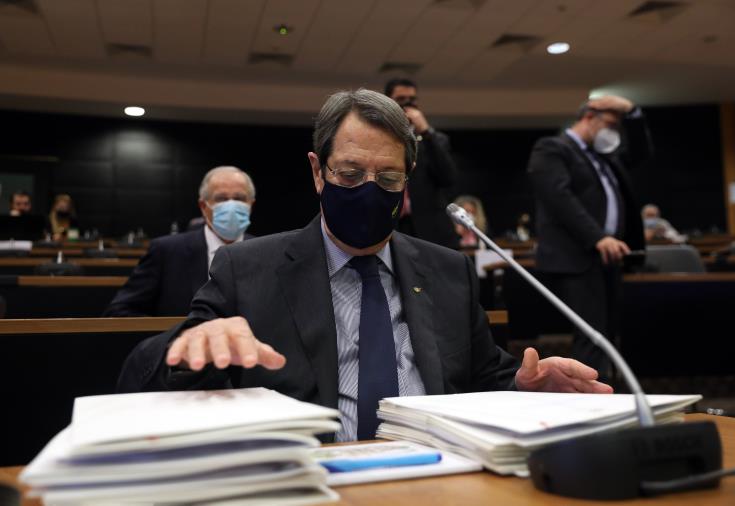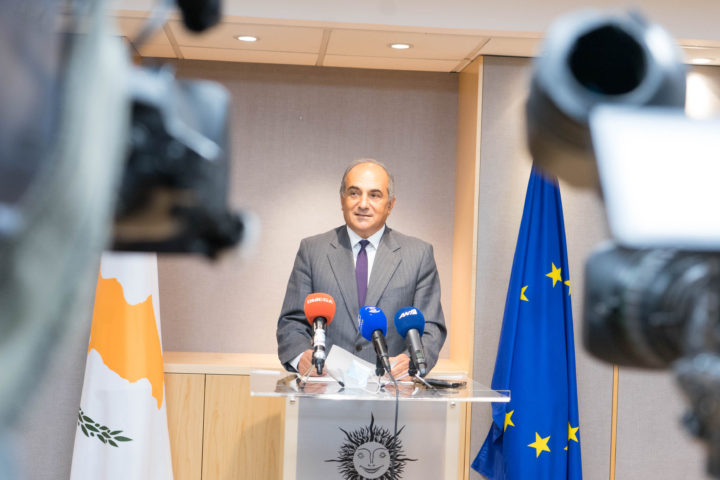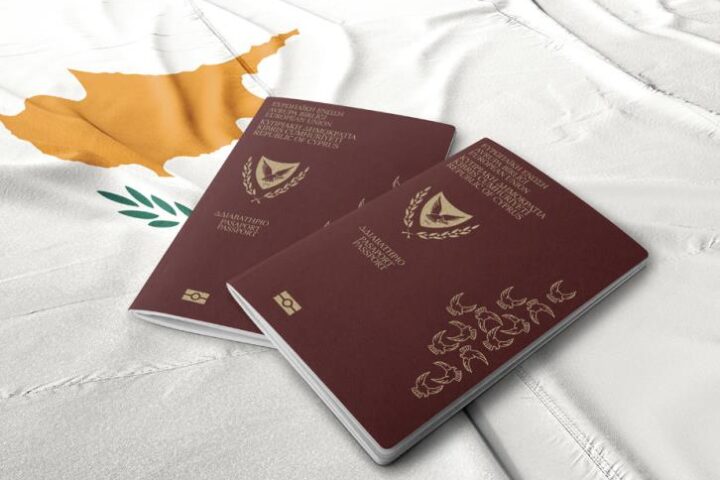President Nicos Anastasiades on Tuesday defended his administration’s decision to expand the Citizenship for Investment Scheme in 2013 while refuting his family law firm was given preferential treatment.
Anastasiades, testifying before the public inquiry into the controversial passport scheme, essentially claimed that the cabinet’s approval of citizenship was merely a formality as applications had been checked by the Interior Ministry and other authorities.
He said the cabinet received a synopsis of the applications after they had been cleared by banks, ministries, and the anti-money laundering unit (MOKAS).
Asked if there was a conflict of interest as some clients were represented or were buying property associated in one way or another with cabinet members, Anastasiades said that the synopsis presented before them, did not include names, nor who the sellers were.
He told the four-member panel that the cabinet could not be expected to act as an audit committee and check that everything was in order.
Defending the decision in 2013 to ramp up the CIS, Anastasiades said it was a decision taken by a cash-strapped government, desperate to avoid a financial meltdown.
He said the government in 2013 had initially decided to drop required investments from €10 mln to €5 mln, and then to €2.5 mln in 2014.
“When I took over the Presidency in 2013 the state was on the verge of collapse. Available cash was at €235.6 mln, which was just enough to cover the needs for the next 30 days,” argued Anastasiades.
He said Cyprus had to pay off some €3.3 bln while the state was obliged to cover a bond issued by the former Laiki Bank worth €1.88 bln.
“The country, after 22 consecutive downgrades by international rating agencies found itself out of international markets with the yields on the 10-year bond of the Republic of Cyprus around 9%, while the issuance of 13-week treasury bills had a yield of 5.3%.”
Anastasiades added that unemployment had reached 16% and growing.
On a personal level, he refuted that a Saudi investor with friendly ties was given special treatment. He said the investor had invested much more than he needed to, to be eligible for a Cypriot passport.
An audit probe had found that the Saudi investor and a total of 38 family members and associates had received passports. Anastasiades claimed that the investor has declined Cypriot citizenship.
The auditor-general launched a probe into the affair after it transpired that the President had used a private jet, to travel to New York for the UN General Assembly in September 2019.
It later emerged that the president had used the Saudi investor’s jet to fly to Seychelles for a holiday with his family.
According to the auditor’s report, a joint citizenship application had been filed by the owner of the jet, two siblings and three other individuals.
“Along with the six individuals, citizenship was granted to 36 members of their families (spouses and children), 19 of which were members of the families of the three brothers,” reads the Auditor General’s report.
No return for golden passports
After the three-hour hearing, President Anastasiades said that he had answered the panel’s questions with honesty.
Asked by a reporter on whether the probing committee had given him a hard time, Anastasiades said that “there are no difficult questions when there are justifiable answers to them”.
Commenting on whether ‘golden passports’ will be revived, he said the government will be looking into ways of encouraging foreign investments, “but not through citizenships”.
Cyprus dropped the “golden passport” scheme in November after Al Jazeera aired a documentary showing reporters posing as fixers for a Chinese businessman seeking a Cypriot passport despite having a criminal record.
Parliament speaker Demetris Syllouris and AKEL MP Christakis Tziovanis were secretly filmed allegedly trying to facilitate a passport for the fugitive investor, they later resigned, although insisted their innocence of any wrongdoing.
Al Jazeera reported that dozens of those who applied were under criminal investigation, international sanctions or even serving prison sentences.
The passport scheme generated over €7 bln in issuing thousands of passports to investors mainly through property deals.










